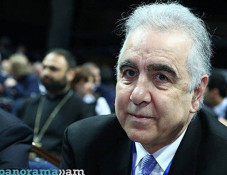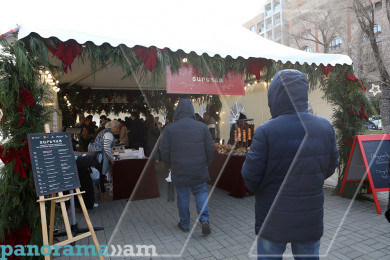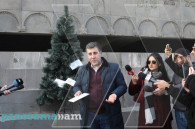
The West and Russia do not need a new flashpoint – German expert on Karabakh conflict and other issues
German political scientist Alexander Rar has responded to questions of the columnist of Panorama.am ArmenMinasyan during an online press conference held as part of a project of the Region research center.
- What impact will the removal of Iranian sanctions and Tehran’s return to big politics without restrictions have on the geopolitical and economic situation in the South Caucasus?
- Let’s wait and see. There was much talk about a radical change – a change for the better- in the map of the Middle East following the ‘liberation’ of Iraq in 2003. And what happened? Did Iranian oil flood the global markets? No. The same may happen to Iran. Iran is geographically isolated. There is no modern transport infrastructure to rapidly deliver gas to global markets. And is it safe to say that Iran has forever refused to seek a nuclear bomb? Iran’s relations with Georgia and Azerbaijan are strained. Tehran remembers that there was talk in those countries about NATO provision of a springboard for possible attacks on Iranian nuclear industry. Turkey is jealous of Iran’s attempts to become a leader in the whole Shiite world in the Arab region. I await with interest the G20 summit in Turkey where the Iranian theme is going to prevail.
- How will the confrontation between Russia and the West affect the escalation of the situation in the Karabakh conflict zone and the negotiation process?
- The West and Russia do not need a new flashpoint. Donbas, ISIS, Syria – the West is weary of armed conflicts. The diplomacy of gradual settlement will be used.
- How efficiently is the Eurasian Economic Union (EEU) operating? Does it live up to expectations of the co-founding states?
- The process of establishing EEU as a successful union is being slowed by the event in Ukraine, but it will accelerate in response to developments in the Middle East. Kazakhstan needs EEU for links with Europe. For Belarus, the EEU is a matter of economic survival, and the same seems to be true for Kyrgyzstan and Tajikistan.
- In statements by OSCE Minsk Group and various Western countries regarding facts of an escalation of the situation in the Karabakh conflict zone, the sign of equality is often put between the sides, even in cases when Azerbaijan obviously bears responsibility. Don’t you consider that approach as inadequate and inciting Baku to new adventures, to put it mildly?
- The conflict should be solved under international law. The difficulty is that there are arguments over which principle of international law is more important – territorial integrity or self-determination of peoples.
-What do you think of the statement by OSCE Minsk Group US Co-chair James Warlick about the ‘need to return the occupied territories ‘? Will it change the bases of the negotiations conducted on the Madrid Principles?
- As I already said, there are various principles , perceptions and interpretations of international law. Different opinions are expressed, sometimes conflicting.
-What can you say about prospects of CSTO as a military structure which acts as a counterbalance to NATO in post-Soviet territory and as an organization guaranteeing security of member states? Will CSTOfollow a path of extension or disintegration?
- One should be frank: CSTO is Russia. Does CSTO have a future? Yes - because Central Asian countries need such a structure. How else can they ensure their security? NATO will not reach the post-Soviet territory. Russia (and China) will prevent it from doing so.
Newsfeed
Videos






























